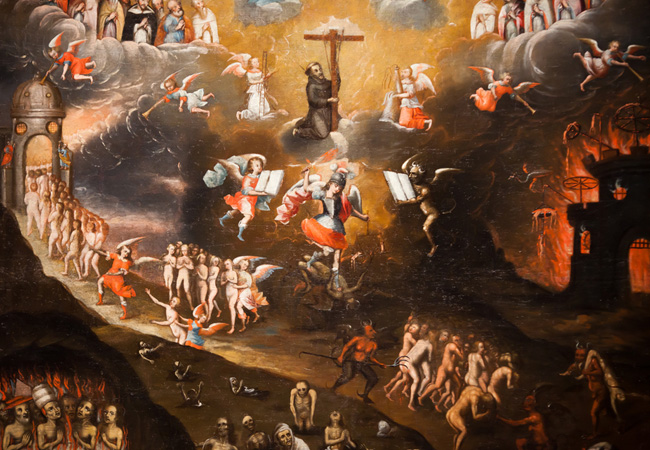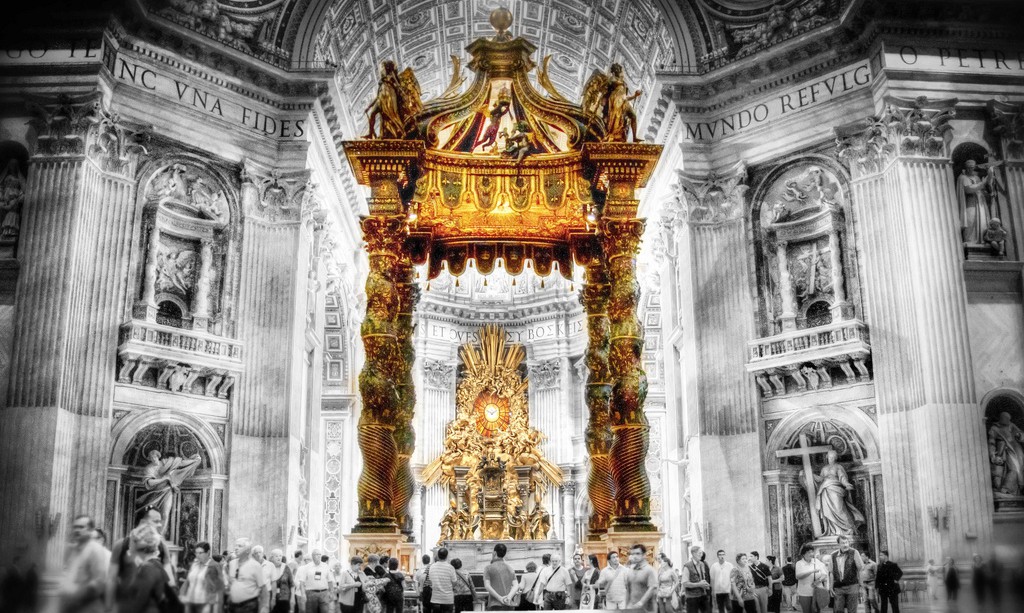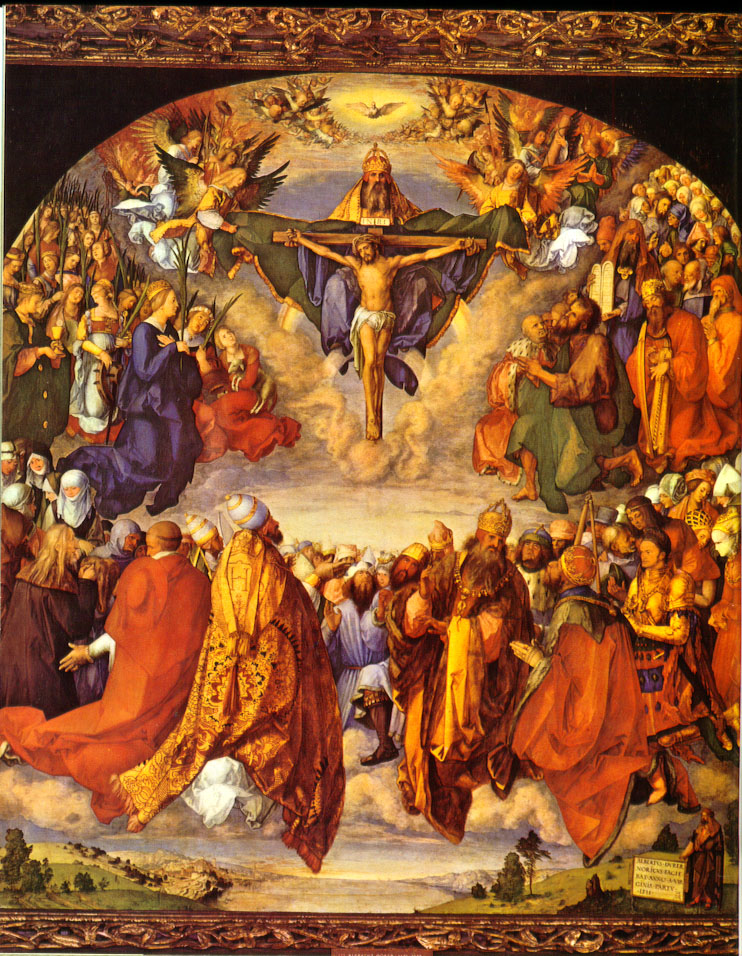
On Fighting Under the Standard of Jesus Christ
by Richard Challoner, 1807
http://catholicharboroffaithandmorals.com/Challoner_Fighting_for_Standard_of_Christ.html
Consider first, that there are upon earth, and have been all along, two opposite kingdoms, two opposite interests, two opposite cities; Jerusalem and Babylon, the city of God and the city of the devil–two opposite standards, that of Jesus Christ, and that of Satan. From the time that man unhappily fell from God by sin, Satan set up his tyrannical usurpation; which he has, by all kinds of tricks and lies, endeavoured to maintain ever since, by alluring poor deluded mortals with the glittering show of worldly pomps, riches, and pleasures, to become his slaves, and to fight under his standard, and by establishing among them his law and maxims, calculated for nothing else but to make them miserable both for time and eternity. And ah! how unhappily has he prevailed over millions! what multitudes everywhere join with him against their God! how is this wretched Babylon spread over all the earth!
Consider 2ndly, that Jesus Christ came into this world to set up His standard, in opposition to the standard of Satan, and to invite all men to follow Him, promising to deliver His followers from all their evils, and to impart to them all His good. They that duly correspond with His call, and join His royal standard, make up the city of God, the blessed Jerusalem, the Church of the Saints. But see now the immense difference between these two opposite cities and their inhabitants; how happy the one, and how miserable the other. The children of Babylon are miserable indeed; they are slaves to passions that can never be satisfied; to a world that can never be contented; to infernal tyrants that are continually dragging them along with them towards hell: they are slaves to empty vanities, childish toys, and lying follies; labouring under a variety of fears, cares, sorrows, uneasinesses, and innumerable other evils, without enjoying so much as any one, solid or lasting satisfaction. But O, how happy are the children of Jerusalem! what content, what peace, what pure pleasure in the soul, are commonly their portion, even in this life, and immortal joys in the next! and shalt thou, my soul, stand one moment to deliberate which of the two thou wilt choose; the standard of Christ, or that of Satan; Jerusalem or Babylon; all good or all evil; verity or vanity; happiness or misery; heaven or hell?
Consider 3rdly, that all manner of motives, from time and eternity, from our origin and last end, from duty and interest, honour and pleasure, fear and love, all here concur to determine the soul in her choice, and to fix her in the happy resolution of following the standard of Jesus Christ. Turn then, my soul, turn away from this Babel of confusion, noise and disorder; break her chains from off thy neck, O captive daughter of Sion. Renounce, for good and all, the king of pride; the tyrant that has usurped to himself the dominion over this world and its deluded admirers; renounce his works and pomps, together with all his associates, the princes of darkness, and all their slaves, and turn thyself to the blessed Jerusalem, the city of peace; embrace the King of Peace, and His glorious standard, with all thy heart; choose Him for thy King for ever; pay Him irrevocable homage, and promise Him inviolable fidelity and obedience.
Conclude, since thou hast now chosen Jesus Christ to be thy king, to fight manfully unto death under His royal standard of the cross; against His and thy enemies, the world, the flesh, and the devil. In order to this, learn well the exercise of prayer, and the rules of the Gospel, which are the military discipline which He has fixed for His soldiers.








